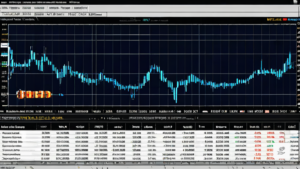The Impact of Standardization on Derivative Contracts

Understanding the Essence of Derivative Contract Standardization
The concept of standardizing derivative contracts is pivotal in the world of finance. By establishing a set of uniform guidelines and parameters, the process aims to streamline trading activities and enhance market efficiency. This framework not only ensures consistency in quality but also facilitates seamless transactions among market participants.
The Essential Role of Standardization
Standardization in derivative contracts serves as a cornerstone for harmonizing trade practices and ensuring that all involved parties adhere to a common set of rules. It simplifies the complexities of financial instruments by providing clarity on key aspects such as contract size, pricing mechanisms, and delivery terms.
Benefits of Standardization
The benefits of standardizing derivative contracts are manifold. Not only does it promote consistency and liquidity in the market, but it also enhances transparency, efficiency in trade execution, and cost-effectiveness. Standardization fosters a level playing field for all market participants, from individual investors to institutional players.
Exploring Standardized Derivatives
Exchange-traded derivatives, such as futures and options, represent some of the most common standardized instruments in the financial realm. These derivatives play a crucial role in providing market participants with standardized exposure to various asset classes, including stocks, commodities, and interest rates.
Distinguishing Exchange-Traded from Over-The-Counter Derivatives
While exchange-traded derivatives adhere to standardized protocols and regulations set by public exchanges, over-the-counter derivatives offer a more customized approach. The former ensures higher liquidity and risk mitigation through regulatory oversight, catering to a diverse range of investors.
Navigating Futures and Options Standardization
Futures and options contracts operate under predefined standards, dictating crucial parameters such as contract size, pricing models, and settlement procedures. These standardized guidelines aim to enhance market accessibility and investor understanding of derivative instruments.
Embracing the Diversity of Standardized Derivatives
Apart from futures and options, standardized derivatives encompass a wide array of financial instruments, including swaps. These contracts facilitate the exchange of cash flows between parties, promoting risk management and strategic investment decisions.
Significance of Swaps Standardization
Swaps, such as interest rate and currency swaps, adhere to standardized guidelines governing contract terms, trading hours, and settlement procedures. This standardization framework enhances transparency and risk management in swap transactions.
In Conclusion
Standardization plays a vital role in shaping the derivatives market, offering market participants a structured and transparent trading environment. Whether opting for exchange-traded or over-the-counter derivatives, investors must weigh the benefits of standardization against the flexibility of customization to make informed investment decisions.




